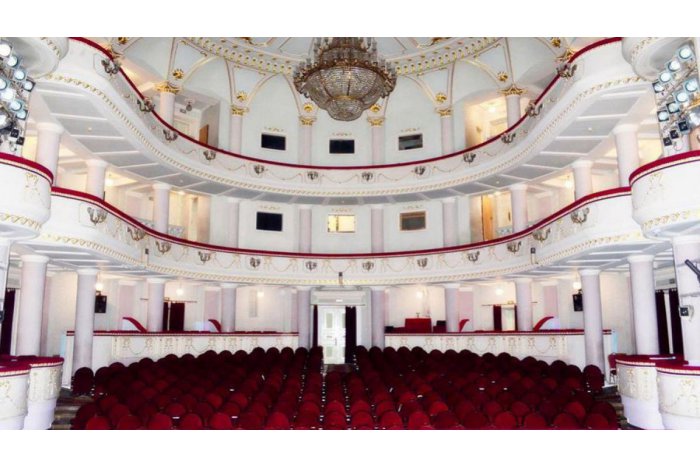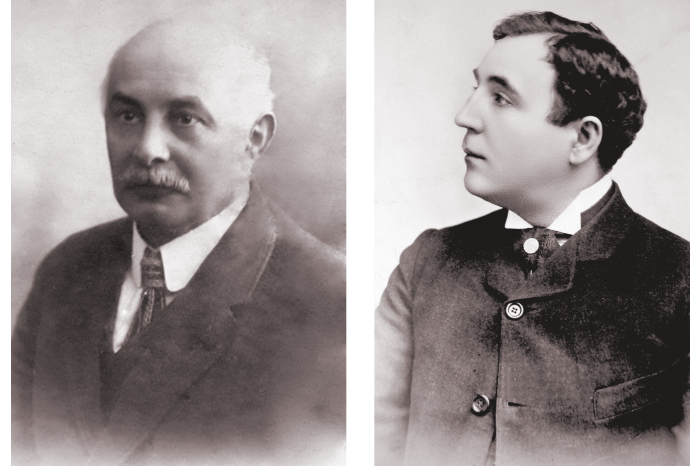Mihai Eminescu National Theatre of Moldova to mark 100 years of artistic work in 2021
16:36 | 22.01.2021 Category: Culture
Chisinau, 22 January /MOLDPRES/ -The 100th anniversary of the foundation of the Mihai Eminescu National Theatre (TNME), with status of national theatre, will be marked on 6 October 2021.
The events due to be held on this occasion will take place under the aegis of Moldova‘s President Maia Sandu.
Contacted by MOLDPRES, TNME director, People’s Artist Petru Hadarca has said that the foundation of the Romanian National Theatre in Chisinau, in 1921, was an act of recovery and reinstatement in rights, especially the right of the native majority Romanian-speaking population to language and culture in the mother tongue and was a consequence of the Political Union from 1918.
”For a period of more than 100 years, since 1812, when a part of the Principality of Moldavia was annexed to the Russian Empire, the Romanian-speaking population was subjected to an aggressive process of denationalization. The culture was one of the three principal ways, through which the Russification entered the collective conscience. The theatre, as phenomenon of modernization and emancipation, for the rest of Europe, gradually entered the Tsarist Empire and the Principality of Moldavia, within simultaneous processes, animated by intellectuals, aimed at developing this art in the mother language, Russian, respectively, Romanian. The residents’ tendency to attend plays in the Romanian language was described as separatism action,’’ Petru Hadarca stressed.
According to Hadarca, the policies of isolation of the Romanians of Bessarabia from those of Romania, promoted by the Tsarist authorities, were boosted in the second half of the 19th century, after the Union of Principalities in 1859 and setting up of the Romanian state. This fact had a direct impact on tours by the Romanian theatre. A string of official acts prove the fact that the authorization of Romanian language troupes was limited and restricted, in order to quicken the population’s Russification and its isolation from the Romanian cultural environment. The procedure of getting authorizations by Romanian troupes, unlike the Russian or Ukrainian ones, was long and costly. The limiting of the access of Romanian troupes to other towns from Bessarabia than Chisinau was part of the policies of population’s Russification.
”In these conditions, in Chisinau, the theatre asserted itself and developed as a tradition, mainly on the Russian channel, as the Russian and Ukrainian troupes were privileged, unlike the Romanian ones, towards which the censorship was particularly vigilant. Despite the unequal conditions, of the small number of plays staged in the Romanian language, the tours made by the troupes of Matei Millo, Theodor Teodorini, Nicolae Luchian, Petre Alexandrescu and Emil Bobescu on all this period had a great power of emanation and cultivated the interest in the Romanian culture. They had the merit to maintain and generate centres of memories and performances of the theatre in the collective memory of the groups of Moldovan Romanians. Thus, in the troubled 1917 year, followed by the event of Union, the issue of theatre in the Romanian language was one of the acutest at that time. The theatre remains a living art, which has power to wake up spirits and unite hearts,’’ Petru Hadarca said.
The first directors of the Chisinau-based National Theatre were Gheorghe Mitu-Dimitriu and Constantin Marculescu.
photo: TNME archive


